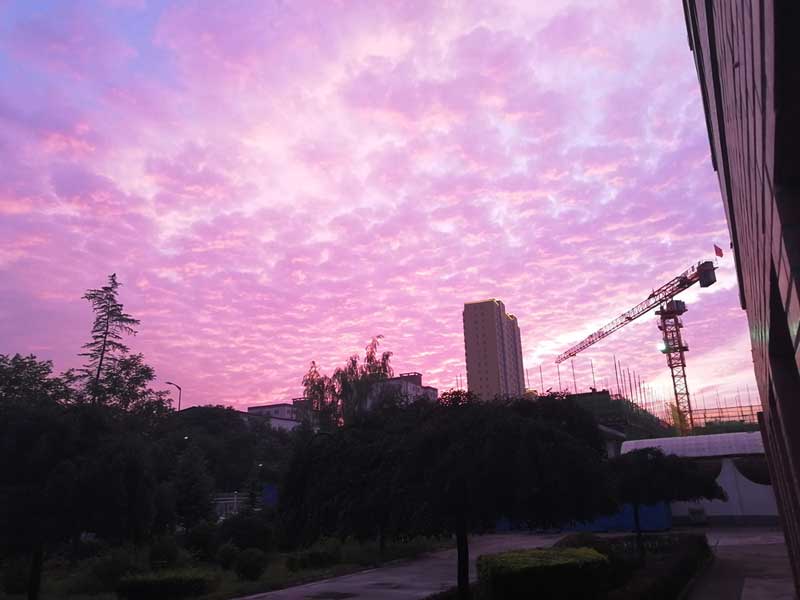As the Federal Government prepares to relax some COVID-19 lockdown restrictions to kickstart the economy, real estate industries are getting ready to go back to business.

NSW and the Northern Territory were the first to lift bans on open for inspections and on-site auctions, and agents are wasting no time. Open houses and auctions will be held around the state from this weekend.
Buyers have been limited to viewing properties by private inspection only and auctions have been conducted online due to social distancing rules enforced in mid-March.
In other parts of the country restrictions are starting to ease. In Queensland, inspections with up to six people, including the real estate agent, are now permitted, although in-room auctions and public open houses are still banned.
In Western Australia open for inspection restrictions have been relaxed, allowing up to 10 people to attend open homes and display village inspections, provided that record-keeping and hygiene practices are in place.
On April 28, Victorian Premier Daniel Andrews confirmed the state would remain in lockdown as the situation was still “fragile”. The two-person gathering rule remains inside and outside the home – except for people who live in the same household – and real estate inspections and auctions will remain digital for the time being.
Restrictions remain in the ACT, South Australia and Tasmania, with only private inspections and online auctions allowed.
The market has been attracting mixed forecasts in recent weeks, but there is expected to be some pent-up buyer demand when the markets re-open fully.
REA Group Economic Research Executive Manager Cameron Kusher was online today to answer your questions.
Here’s what he had to say:
Q. Is this a buyer’s or seller’s market at the moment and why?
A. The truth is this is an unprecedented market. I would say that it is a buyer’s market at the moment but there are very few buyers. The reason for so few buyers is that consumer confidence is sitting at levels last seen during the Global Financial Crisis and people are concerned about their job security and their health. So for those people that are still willing to buy they are certainly in a relatively strong position.
Q. What do you think will happen to property prices if there is a recession?
A. I think it is almost inevitable that we will get a recession and with that there are likely to be some price falls but it is incredibly difficult to forecast. There is a lot of support for mortgagees at the moment with lenders offering repayment holidays and that should initially limit any significant price falls. Once that support is removed it will really be a question of how well confidence is returning and how well the economy rebounds, it could also depend on if the Government supports the sector. My base case at the moment is moderate falls of five per cent to 10 per cent, with the main impact being significantly fewer transactions over the coming months.
Q. We pulled our house off the market when the lockdown started – when should we put it back on?
A. Getting the timing right is extremely difficult. What I can tell you is that search activity on realestate.com.au is back above levels it was at before the lockdown, so a lot of people are looking at the market. We also know that open homes and onsite auctions are back but that is somewhat offset by low consumer confidence and rising unemployment. I would say talk to some local agents about your options, realestate.com.au have some special listing options available to agents throughout COVID-19 and you might find that these options would work really well for you.
Q. What are your thoughts on the impact on commercial property with potential widespread business closures, the strengthening of the shop online revolution and businesses embracing a work from home structure that may well be here to stay. Should smart residential property investors be on the lookout for commercial property with the potential for zoning changes for residential conversion?
A. I think that is definitely a good strategy. Many businesses have been reluctant to let people work from home but since the COVID shutdowns, as a country white-collar workers have basically all proved we can work from home. The nature of the office looks likely to change, people will want the flexibility to work from home and this is likely to result in less demand for office space. So I do think that commercial office demand is likely to ease post-COVID.
Q. I have some US dollars and with the exchange rate the way it is I was thinking about investing in some property in Australia. What cities should I be looking at for long and short term growth?
A. I certainly can’t offer investment advice but if we look over the longer term, Sydney and Melbourne have consistently been strong performing markets. In saying this, the adoption of working from home (assuming your workplace will continue to let you do that) could see some of the regional near capital city areas rise in popularity due to their lifestyle factors and cheaper housing costs or some of the smaller capital cities like Brisbane and Adelaide.
Q. Which part of the market do you think will do better than others in the year ahead?
A. Undoubtedly the whole market is going to be challenged over the coming year. The areas likely to do best are the areas in which people already have wealth and are unlikely to lose significant wealth. That means blue-chip inner city suburbs are likely to best placed throughout COVID-19 think Eastern Suburbs, Lower North Shore and Northern Beaches. I should note that they won’t be immune to the impacts they just seem likely to hold up better.
Q. I have been reading there is a new push on to get government to abolish stamp duty on property purchases. Do you agree with this and why? Do you think it will happen?
A. I do agree with this and I think it may actually happen this time because NSW and Victoria are facing such a revenue hole from the drop in stamp duty revenue. Stamp duty is an inefficient tax which is punitive for people that purchase property and it should be replaced with a more efficient and encompassing tax such as land tax. The difficulty will be managing the changeover period from stamp duty to a universal land tax.
Q. Real estate agents are talking about a slight pick up in sales from a month ago. Do you think this is a sign that the worst is behind us?
A. I think the fact that the NSW Government is letting open homes and auctions happen again is certainly a positive early sign. According to the ANZ-Roy Morgan Consumer Confidence Index, confidence has increased for 5 consecutive weeks from its all-time low so that is also positive. I think sentiment has certainly improved and at this stage the worst is behind us but I think we also shouldn’t get too complacent. A few breakouts of COVID-19 necessitating shutdowns to be reintroduced could quickly evaporate the improvement we have seen over recent weeks. But yes, I think at the moment things are much better than they were about a month ago.
Originally published as What will property look like after lockdown? REA Group’s Cameron Kusher answers your questions

